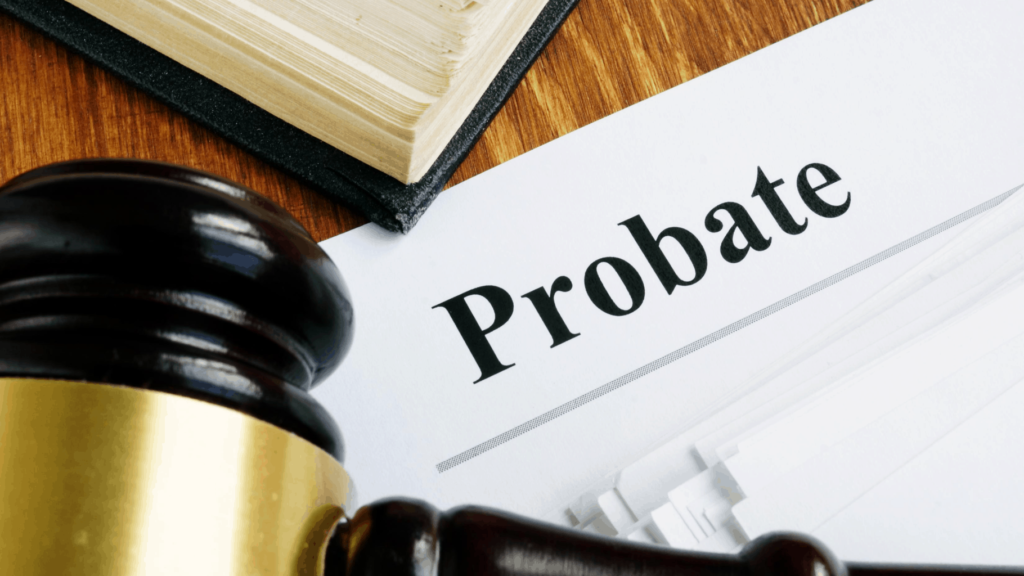
When someone dies, whether there is a will or not, the executor of the will or a family member will need to apply to the court for Grant of Probate or Letters of Administration. This gives them the authority to handle the deceased’s estate including all the necessary financial and property aspects.
However, sometimes probate must be applied for, in some cases it is not needed and in other circumstances, Letters of Administration will be required instead of probate. So, what is the process to obtain a Grant of Probate or Letters of Administration?
When is probate necessary?
First, let’s just clarify when probate is necessary. The general rule is that if the value of the deceased’s estate is more than £5,000, Grant of Probate is required.
If there is a will, it is the appointed executor’s role to apply for probate but if there is no will or executor, the next of kin or a family member representing the deceased will need to apply for Letters of Administration. This grants them the authority to handle the deceased’s estate and they will be called the administrator.
Other circumstances where Letters of Administration are required are:
● One person has been left the entire estate;
● There are no executors named in the will;
● The named executors are not prepared to accept the role.
Only an executor of the estate can apply for a Grant of Probate. If there is no executor, the next of kin or a close relative must apply for Letters of Administration in order to manage the deceased’s estate.
When is probate not necessary?
Let’s quickly explain when you don’t need to apply for a Grant of Probate. As a rule, if the majority of the deceased’s estate is jointly owned with their living spouse or civil partner, such as joint bank accounts or a mortgage, they may not need to apply for Grant of Probate. Other circumstances when probate is not necessary are:
● The estate is valued at less than £10,000 and there are no shares or land as part of the estate. If the estate is particularly small and there is only a token amount in a bank account, the bank has the discretion as to whether they need Grant of Probate to release the funds.
● If any money, i.e. bank accounts, or property are owned jointly with a living spouse or civil partner.
The process to obtain Grant of Probate or Letters of Administration
Once the death has been registered (which must be within five days), applications for Grant of Probate must be submitted to the court within six months. This is not because there is a time limit on applying for probate; it is because there is a time limit on paying HMRC any Inheritance Tax that may be due. In practice, reporting the estate’s value to HMRC and applying for probate is usually done at the same time, as both are needed to finalise the deceased’s estate.
Whether there is a will or not, the process to obtain a Grant of Probate or Letters of Administration is similar. The first step is to itemise the deceased’s estate and calculate its value. This will include any money in their bank or building society accounts, the value of the deceased’s belongings and any property held in the deceased’s name (even if it is in joint names, the value still needs to be ascertained). You will need to consider:
● Bank accounts, pension funds and any other financial assets, such as mortgage on a property, savings and life assurance policies
● Any property, whether in joint names or not, will need to be valued by a local estate agent. It is always worth getting three to four valuations.
● Any outstanding debts, such as utilities, mortgage payments, credit cards, loans or any other monies owed by the deceased
● Any gifts the deceased made that are above the official allowance within the previous seven years (not including Christmas, birthday or anniversary gifts) – they may be subject to Inheritance Tax.
In most cases, you will need a copy of the death certificate and/or will be sent
to the relevant organisations.
Applying for probate can either be done through a solicitor, particularly if a solicitor holds the deceased’s will, a family solicitor, or you can file for probate yourself online. If there is a will, you will need the following to apply for probate:
● An official copy of the death certificate (if applying online, this will be a scanned image);
● The original will;
● The application fee.
One thing to note is that you can only apply for probate online if:
● All the named executors are alive and able to make decisions; and
● The deceased spent most of their life in England and Wales.
The actual process to obtain Grant of Probate or Letters of Administration is:
● Register the death to receive the death certificate
● Advise beneficiaries and notify the companies the deceased dealt with, including banks, insurance companies, mortgage providers and utility providers. Ask them to close the deceased’s account, stop any additional charges and send a final statement.
● Submit Grant of Probate or Letters of Administration forms along with HMRC’s inheritance tax forms. All of these forms can be submitted online but you will need to send some original documents, such as the will and death certificate.
● Pay inheritance tax to HMRC, if applicable. In most cases, surviving spouses/civil partners or family members will need to get a loan to cover this cost until the deceased’s estate has released the assets.
● Pay any outstanding debt, such as utility bills, credit card balances, loans or mortgages. If there aren’t sufficient funds to cover these costs, discuss with the creditor to arrange a repayment agreement.
● If there’s life insurance, now’s the time to claim as this may be enough to cover any outstanding debts and funeral costs
● Allocate the estate’s assets to the beneficiaries according to the deceased’s wishes, if they left any, otherwise equally.
If there is no will, the next of kin or a close relative of the deceased will need to apply for Letters of Administration which you can do yourself via post using the form PA1A, which is a probate application form. This can be downloaded from an online probate service or from a probate registry near you.
At Probates Online, we are able to offer a professional probate service online that is efficient and affordable. If you are an Executor of a will and need to apply for Grant of Probate, Letters of Administration or would like to take advantage of our entire Estate Administration service, visit our website for more information or contact us today.




